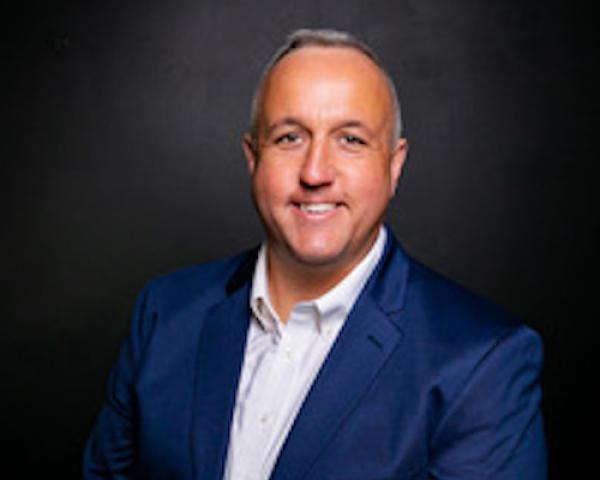Independent insurance agents constantly face the challenge of finding new prospects to grow their agency's business. While casting a wide net may be appropriate in some circumstances, strategic targeting of commercial sectors with consistent hit ratios can lead to more efficient prospecting and, ultimately, higher conversion rates.
Having been a commercial lines producer for 25 years, I realize identifying industries with consistent hit ratios and prospecting to them can be challenging, but it is crucial for building a robust book of business. During my time as an agent, I developed specializations in retail auto parts and private colleges and universities in Kentucky. This enabled me to concentrate my marketing efforts and outreach toward these sectors. Through this focused approach, I gained a deep understanding of these industries, establishing myself as an expert in the field.
In my role at AHA Insurance Network, I conduct a two-day course designed for agents who want to specialize in writing small commercial business. A part of this program is dedicated to educating them on prospecting for industries with consistent hit ratios. I have highlighted some of the same course topics here and offer insights on identifying potential clients and industries with the most reliable hit ratios, as well as common pitfalls to avoid.
Industries With High Hit Ratios
In a highly competitive landscape, some agents may think targeting niche industries, such as golf courses, will be the remedy. However, this may not provide a long-term solution, as the market can be limited by your geography. Regardless of your location, there is an abundance of contractors such as electricians, plumbers, HVAC technicians and excavators who are vital to any construction or repair project. Therefore, I recommend pursuing contractors, especially artisan contractors who are physically present at the job site. Unlike general contractors, who outsource the work, artisan contractors are favored by insurance carriers because they are more regulated.
Developing a Hit List
Developing a hit list for a specific market typically involves examining carriers and their performance in that market. You'll want to identify the specific class of business you're interested in targeting, such as plumbing contractors, and then gather data on the carriers that write those types of policies. This data might include information on each carrier's market share, loss ratio and hit ratio in that market.
Once you have this information, look for carriers with a hit ratio of 30% or higher in that market. These are the carriers most likely to be successful in writing policies for that class of business. Once you compile a list of these companies, along with any other relevant information, such as their contact information, underwriting guidelines and any unique features of their policies, you’re ready to begin your outreach.
Developing a hit list requires access to comprehensive data on carriers and their performance in specific markets. This information can be obtained from a variety of sources, including industry reports, market research firms and insurance industry associations. Some insurance agencies also have access to proprietary data that can help inform their hit list development.
AHA Insurance Network members can request a lead list for specific classes in certain counties or ZIP codes. Members can review the lists to identify carriers they already use for direct appointments as well as the 10 most promising classes. Alternatively, agents can explore online directories or professional associations to identify potential clients within specific industries.
Building Relationships
If you want to excel in a specific industry, it's crucial to network within that industry and join the relevant associations. This strategy worked well for me when I managed an agency serving the automotive retail industry, particularly the independently owned auto parts stores affiliated with Carquest. I attended conferences and meetings to establish myself as the go-to insurance expert for these accounts by connecting with the district manager of this company and getting involved with the Kentucky Indiana Automotive Wholesalers Association.
This approach requires regular, active engagement in associations at the local, regional and national levels. Find a carrier that will collaborate with you and become well-versed in the industry’s language and nuances. This approach enables agents to position themselves as experts or at least come close to being one.
See also: The Future of the Independent Agent
Staying Current on Industry Trends
It is crucial to regularly read trade publications and use online resources to stay current on industry changes, such as the recent change in Indiana regarding underground gas storage tanks. In Indiana, gas station owners are now required to have pollution insurance, whereas it is not required in Kentucky. This knowledge is essential when assessing an account to make sure it has the necessary coverage. An agent can remain ahead of the game and competitive by staying informed through trade publications, carrier newsletters and meetings with underwriters and marketing reps.
Mistakes to Avoid
It’s great to have written almost all the golf courses within a geographic area. But then what? Independent agents need to expand their reach beyond a certain geography or sector to continue growing the business. This might involve expanding the geographic area or including another class of business. It's important to ensure there are enough prospects to sustain an agency over the long term and not just in the immediate future.
Final Thoughts
For generalists, which is probably the case for most independent insurance agents, the key is to never stop learning. Find a mentor and develop relationships with underwriters on both the E&S and standard carrier side. Don't be afraid to ask questions of a mentor, marketing reps and carrier underwriters. They are amazing resources for information and guidance. Everything is constantly changing in commercial lines insurance, so asking questions and learning as much as possible is essential.
Independent insurance agents face many challenges when it comes to developing a robust book of business. With the right strategies and a focus on industries with consistent hit ratios, success in the small commercial space is attainable. Agents can position themselves as experts and grow their businesses in a sustainable way by developing specializations, building hit lists, networking within industries and staying current on trends.
Remember, success is not just about casting a wide net but about targeting the right prospects and cultivating meaningful relationships.







